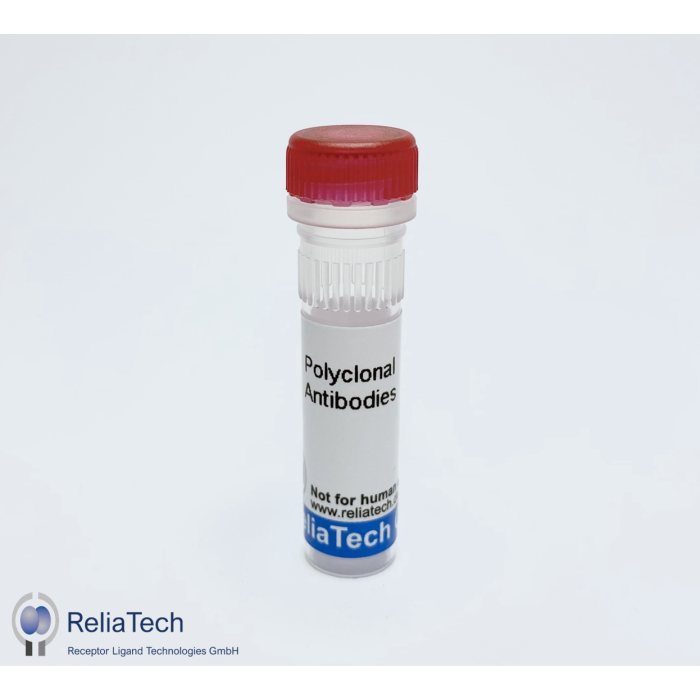Description / VEGF-B167
Vascular endothelial growth factor B (VEGF-B), also known as vascular endothelial growth factor-related factor (VRF), is a member of the VEGF family of growth factors that share structural and functional similarity. Five mammalian members, including VEGF-A, B, C, D and PlGF, have been identified. VEGF family members are disulfide-linked dimeric proteins that are important regulators of physiological and pathological vasculogenesis, angiogenesis and lymphangiogenesis. VEGF-B is expressed in most tissues, especially in heart, skeletal muscle and pancreas. In many tissues, VEGF-B is coexpressed and can heterodimerize with VEGF. By alternative splicing, two isoforms of mature VEGF-B containing 167 or 186 amino acid (aa) residues exist. The two VEGF-B isoforms have identical amino-terminal cysteine knot VEGF homology domains but the carboxyl end of VEGF-B167 differs from that of VEGF-B186 by the presence of a highly basic cysteine-rich heparin binding domain. Whereas VEGF-B186 is a secreted diffusible protein, VEGF-B167 is sequestered into the cell matrix after secretion. Both VEGF-B isoforms bind VEGF receptor 1 (VEGFR-1), but not VEGFR-2 or VEGFR-3. On endothelial cells, ligation of VEGFR-1 by VEGF-B has been shown to regulate the expression and activity of urokinase type plasminogen activator and plasminogen activator inhibitor 1. VEGF-B167 and a proteolytically processed form of VEGF-B186 (VEGF-B127) also bind neuropilin1 (NP1), a type I transmembrane receptor for semaphorins/collapsins, ligands involved in neuron guidance. Besides VEGF-B, NP1 has been shown to bind PlGF-2, VEGF165 and VEGFR-1. The many interactions of NP1 with VEGF ligands and receptor suggest that NP1 may function as a regulator of angiogenesis.
More Information
| Size | 200 µg |
|---|---|
| Source | Rabbit |
| Biological Activity | Western Blot: Use 2-5 µg/ml |
| Clone Nr. | Rabbit IgG |
| Species Reactivity | Human |
| Formulation | lyophilized |
| Buffer | PBS |
| Reconstitution | Centrifuge vial prior to opening. Reconstitute in sterile water to a concentration of 0.1-1.0 mg/ml. |
| Stability and Storage | The lyophilized antibody is stable for at least 2 years at -20°C. After sterile reconstitution the antibody is stable at 2-8°C for up to 6 months. Frozen aliquots are stable for at least 6 months when stored at -20°C. Addition of a carrier protein or 50% |
| Antigen | Recombinant human VEGF-B167 |
| Application | WB |
| Synonyms | vascular endothelial growth factor B;VEGFB; VRF; VEGFL |
| Uniprot ID | P49765 |
| Protein RefSeq | NP_003368.1 |
| mRNA RefSeq | NM_003377.4 |

